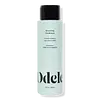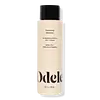What's inside
What's inside
 Benefits
Benefits

 Concerns
Concerns

 Ingredients Side-by-side
Ingredients Side-by-side

Water
Skin ConditioningCetearyl Alcohol
EmollientStearyl Alcohol
EmollientGlycerin
HumectantAmodimethicone
Parfum
MaskingAmaranthus Caudatus Seed Extract
Skin ConditioningHydrolyzed Rice Protein
Skin ConditioningCapryloyl Glycerin/Sebacic Acid Copolymer
Skin ConditioningBehentrimonium Chloride
PreservativeDiheptyl Succinate
EmollientTrideceth-12
EmulsifyingCetrimonium Chloride
AntimicrobialHydroxyethylcellulose
Emulsion StabilisingLinoleamidopropyl Pg-Dimonium Chloride Phosphate Dimethicone
Ethylhexylglycerin
Skin ConditioningAlcohol
AntimicrobialTetrasodium Glutamate Diacetate
Phenoxyethanol
PreservativeWater, Cetearyl Alcohol, Stearyl Alcohol, Glycerin, Amodimethicone, Parfum, Amaranthus Caudatus Seed Extract, Hydrolyzed Rice Protein, Capryloyl Glycerin/Sebacic Acid Copolymer, Behentrimonium Chloride, Diheptyl Succinate, Trideceth-12, Cetrimonium Chloride, Hydroxyethylcellulose, Linoleamidopropyl Pg-Dimonium Chloride Phosphate Dimethicone, Ethylhexylglycerin, Alcohol, Tetrasodium Glutamate Diacetate, Phenoxyethanol
Water
Skin ConditioningSodium C14-16 Olefin Sulfonate
CleansingCocamidopropyl Hydroxysultaine
CleansingDimethyl Lauramide/Myristamide
EmulsifyingParfum
MaskingAmaranthus Caudatus Seed Extract
Skin ConditioningHydrolyzed Rice Protein
Skin ConditioningPropanediol
SolventCetrimonium Chloride
AntimicrobialPolyquaternium-10
Sodium Methyl 2-Sulfolaurate
CleansingDisodium 2-Sulfolaurate
CleansingHydroxypropyl Guar Hydroxypropyltrimonium Chloride
Citric Acid
BufferingSodium Chloride
MaskingSodium Benzoate
MaskingPotassium Sorbate
PreservativeWater, Sodium C14-16 Olefin Sulfonate, Cocamidopropyl Hydroxysultaine, Dimethyl Lauramide/Myristamide, Parfum, Amaranthus Caudatus Seed Extract, Hydrolyzed Rice Protein, Propanediol, Cetrimonium Chloride, Polyquaternium-10, Sodium Methyl 2-Sulfolaurate, Disodium 2-Sulfolaurate, Hydroxypropyl Guar Hydroxypropyltrimonium Chloride, Citric Acid, Sodium Chloride, Sodium Benzoate, Potassium Sorbate
Ingredients Explained
These ingredients are found in both products.
Ingredients higher up in an ingredient list are typically present in a larger amount.
This ingredient comes from the seed of the velvet flower. It has skin hydrating, nourishing, and antioxidant properties.
This seed is rich in peptides, fatty acids, squalene, vitamin C, and vitamin E.
According to manufacturer, this ingredient is great for adding softness and shine to hair.
Learn more about Amaranthus Caudatus Seed ExtractThis ingredient is a preservative, antimicrobial, and emulsifier. It is often used in cosmetics for its ability to cleanse, condition, and reduce static.
Cetrimonium chloride is a quaternary ammonium salt, meaning it has a water-soluble structure.
Hydrolyzed Rice Protein is protein extracted from rice. This ingredient is rich in antioxidants and peptides.
Studies show this ingredient may help with blocking the melanin creation process when skin is exposed to UV.
Parfum is a catch-all term for an ingredient or more that is used to give a scent to products.
Also called "fragrance", this ingredient can be a blend of hundreds of chemicals or plant oils. This means every product with "fragrance" or "parfum" in the ingredients list is a different mixture.
For instance, Habanolide is a proprietary trade name for a specific aroma chemical. When used as a fragrance ingredient in cosmetics, most aroma chemicals fall under the broad labeling category of “FRAGRANCE” or “PARFUM” according to EU and US regulations.
The term 'parfum' or 'fragrance' is not regulated in many countries. In many cases, it is up to the brand to define this term.
For instance, many brands choose to label themselves as "fragrance-free" because they are not using synthetic fragrances. However, their products may still contain ingredients such as essential oils that are considered a fragrance by INCI standards.
One example is Calendula flower extract. Calendula is an essential oil that still imparts a scent or 'fragrance'.
Depending on the blend, the ingredients in the mixture can cause allergies and sensitivities on the skin. Some ingredients that are known EU allergens include linalool and citronellol.
Parfum can also be used to mask or cover an unpleasant scent.
The bottom line is: not all fragrances/parfum/ingredients are created equally. If you are worried about fragrances, we recommend taking a closer look at an ingredient. And of course, we always recommend speaking with a professional.
Learn more about ParfumWater. It's the most common cosmetic ingredient of all. You'll usually see it at the top of ingredient lists, meaning that it makes up the largest part of the product.
So why is it so popular? Water most often acts as a solvent - this means that it helps dissolve other ingredients into the formulation.
You'll also recognize water as that liquid we all need to stay alive. If you see this, drink a glass of water. Stay hydrated!
Learn more about Water